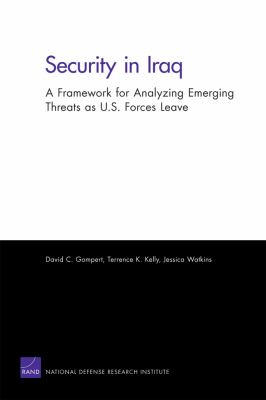
e-Book
|
Security in Iraq : a framework for analyzing emerging threats as U.S. forces leave
-- Framework for analyzing emerging threats as US forces leave
Copies
0 Total copies, 0 Copies are in,
0 Copies are out.
Title
Security in Iraq : a framework for analyzing emerging threats as U.S. forces leave -- Framework for analyzing emerging threats as US forces leave
Call No
UA853.I75
Digital Link
Authors
Subjects
Language
English
Published
Santa Monica, CA : RAND, 2010.
Publication Desc
1 online resource (xxiv, 71 p.) : ill. (some col.).
ISBN
9780833050274 (electronic bk.)
Series








